Veterinary School Used By Washington To Decide On Vaccine Mandate For Kids
Now, it appears that after a recent State Board of Health Technical Advisory Group (TAG) meeting, consideration for another Washington mandate, one that would affect school-aged children, is being put up for a vote. As part of their decision making process, they're relying heavily on the advice of doctors whose primary specialty is in treating not humans, but animals and pets.
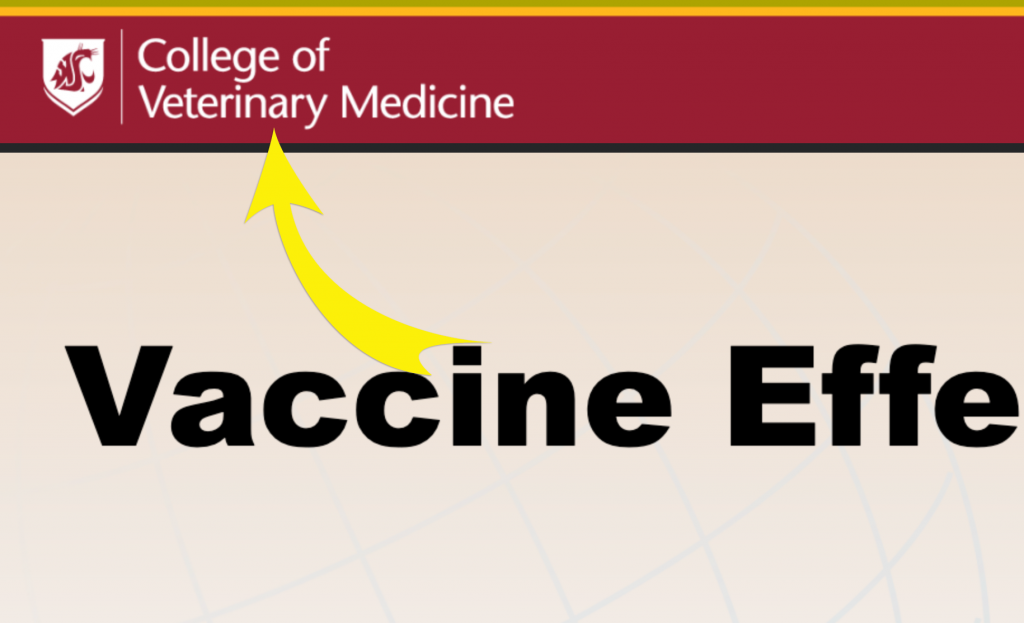
Back in October 2021, Washington state Governor Jay Inslee laid out his vaccine mandate for state workers. Get the shot or get fired, was the bottom line. As the Delta variant gave way to the various omicron variants, the focus began to shift towards public schools and vaccinations for children in general. Now, it appears that after a recent State Board of Health Technical Advisory Group (TAG) meeting, consideration for another Washington mandate, one that would affect school-aged children, is being put up for a vote. As part of their decision making process, they’re relying heavily on the advice of doctors whose primary specialty is in treating not humans, but animals and pets.
The apparent purpose of the latest TAG meeting was to present facts that vaccinating the young poses little to no risk to children while also showing that having children getting vaccinated will reduce the risk of person-to-person COVID transmission in schools or childcare settings. Important to presenting these facts was a PowerPoint presentation conducted by Eric Lofgren, an assistant professor at the Allen School for Global Animal Health, which is part of Washington State University. The 28-slide presentation was titled Evaluating COVID-19 Vaccination in Children – Morbidity and Mortality Prevention. As you will see, this presentation not only comes from the Allen School for Global Animal Health but also represented on the slides is the Washington State University College of Veterinary Medicine.
As for Lofgren’s presentation, it was actually well thought out, giving plenty of numbers and situations. Some are just pointing to the fact that it’s a little odd that a state with so many doctors focused on human health in it might rely on the advice of doctors who aren’t focused entirely on humans for advice on how to deal with a disease in a pandemic.
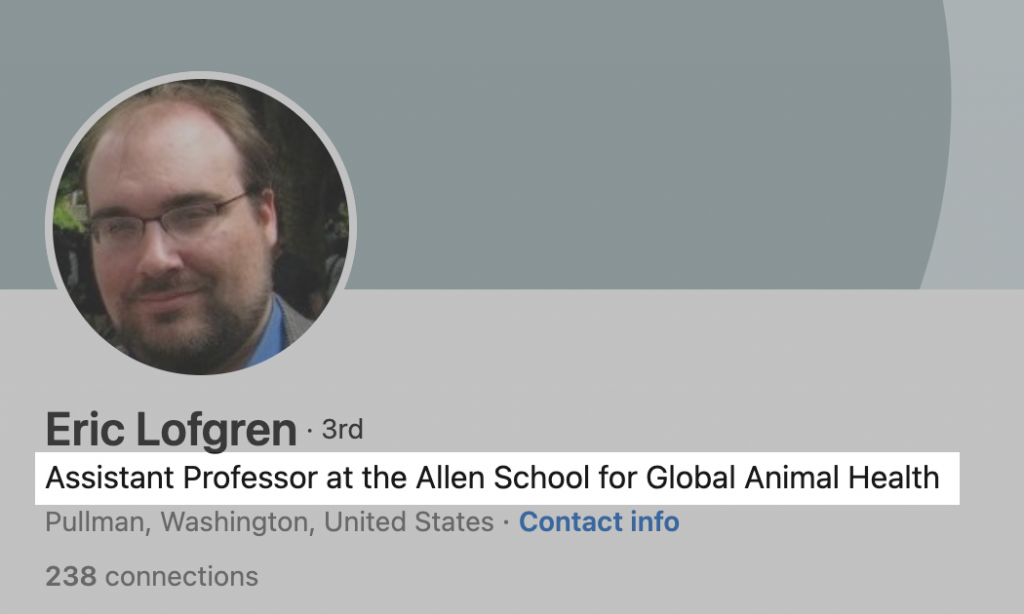
To be fair to Lofgren and the other animal experts around him, the Allen School for Global Animal Heath does not strictly study infectious diseases within the animal kingdom. While there is a high level of concentration on animals, they state on their website that they work to “provide innovative solutions to global infectious disease challenges through research, training, global outreach, and application of disease control and disease surveillance at the human-animal interface. Our work in animal health ultimately improves the health and socioeconomic status of people around the world.”
The same can be said for WSU’s College of Veterinary Medicine. Established in 1899, the College of Veterinary Medicine is one of the oldest and most well-respected in the country. True, it too focuses on animals, but like the Allen School for Global Animal Health, they also key on improving the lives of people as well. Still, you’d think with an issue this important the state would be relying primarily on the advice of doctors focused entirely on human diseases, rather than on the opinions of doctors who moonlight working on humans while spending their days focusing on horses.
To get where Lofgren wanted to go with his presentation, he brought out the big guns by first showing the overall cases as it concerned children aged 5-17 years. He moved to the omicron variant to stoke fears by underlining the fact that while milder than the true COVID, it is highly more transmissible. He also had to point out the fact that omicron is being seen considerably more in children. Are they building a case for one more Washington mandate?
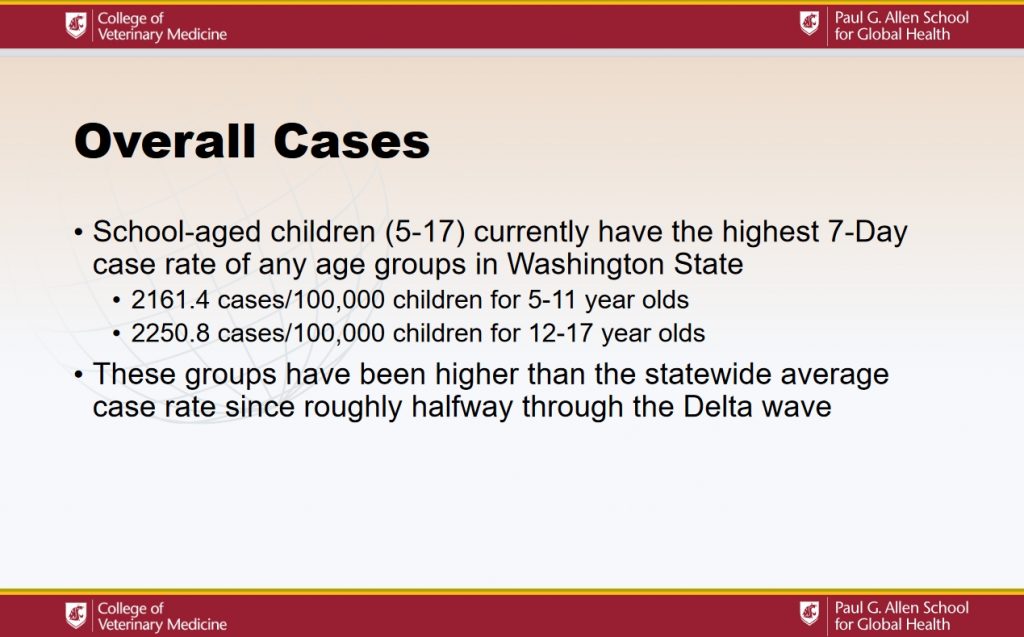
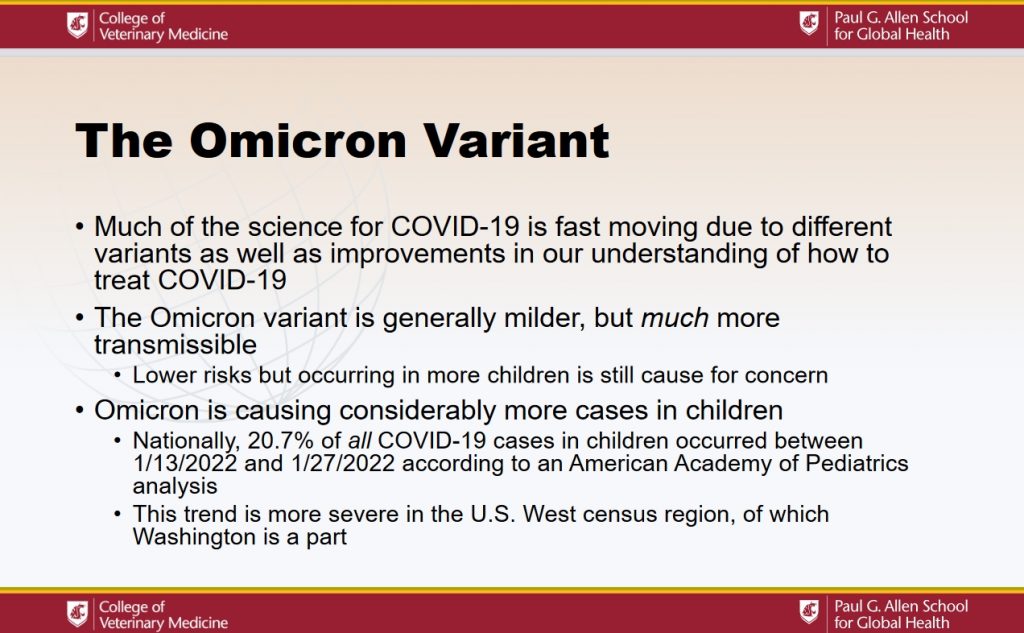
If pointing out how transmissible omicron in children wasn’t enough to cause concern, the Lofgren had a backup plan. He introduced it as Multisystem Inflammatory Syndrome in Children (MIS-C). The result of this can possibly be inflammation of organs including the heart, brain, kidneys, lungs, and GI tract.
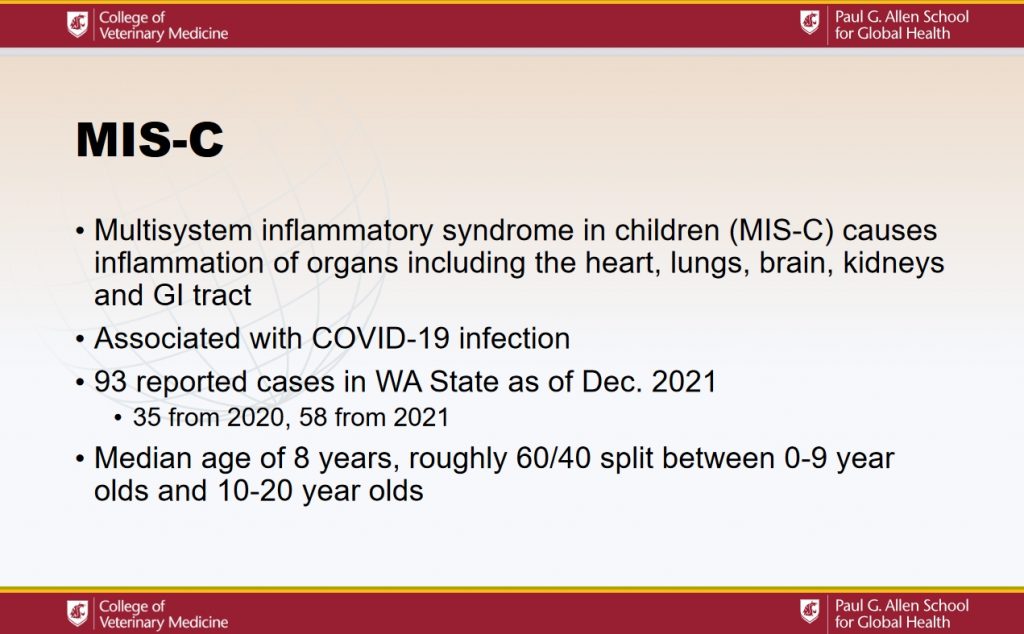
To alleviate the concern surrounding MIS-C, Lofgren had a solution. Vaccinate the kids. He even presented positive numbers when vaccinated children went to battle against MIS-C.
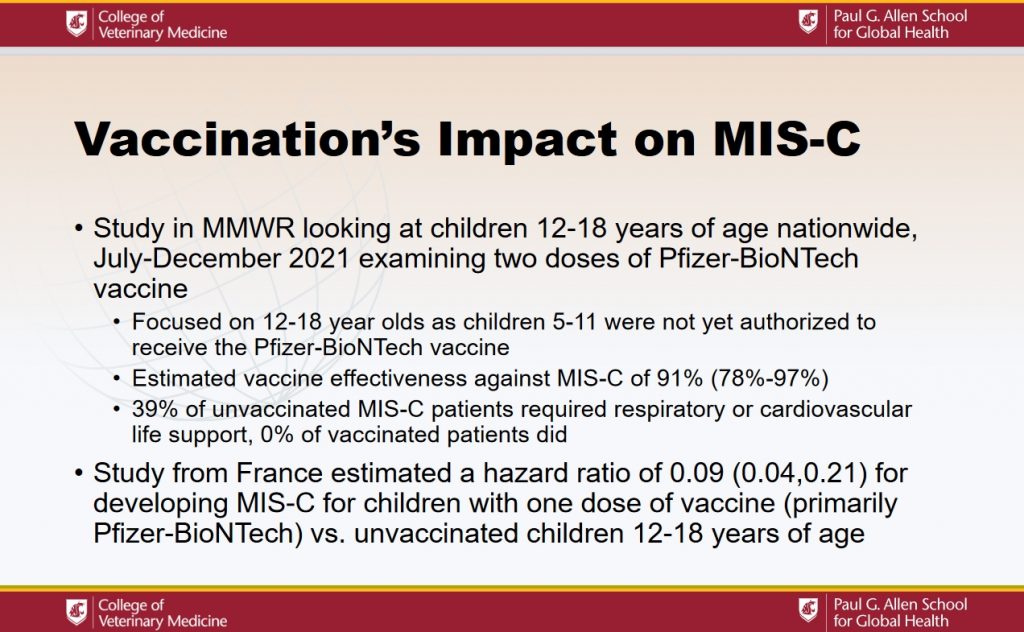
The facts presented didn’t just show the positives. He also produced some of the negative numbers as they concerned vaccinating the young. He spoke of the many side effects seen with the vaccines. He spoke of the major concern seen in the young – myocarditis.
It does seem from this presentation by the state’s group of handpicked horse doctors, that there’s a clear goal. That goal is to present numbers and facts that would help the state decide if another Washington mandate was going to be necessary and if it would include school-aged children. The slides presented by the state’s expert veterinarians seem to suggest that they’re leaning in the direction of mandates for kids. No word yet if they also plan to vaccinate your pets. Perhaps they’ll hire some human focused doctors to decide that.



